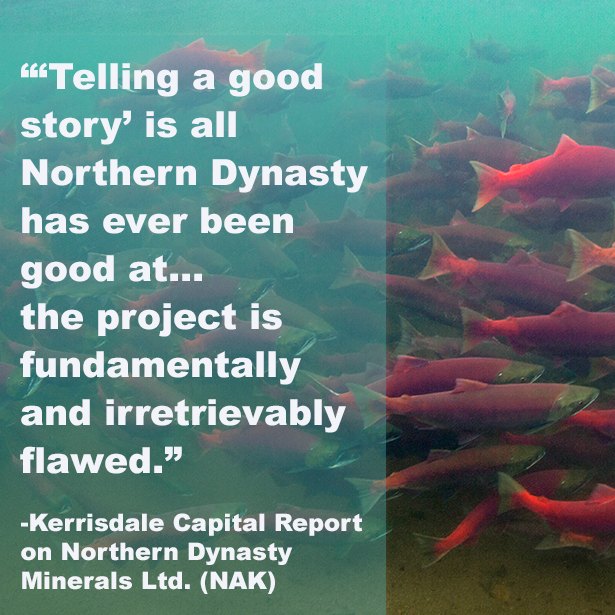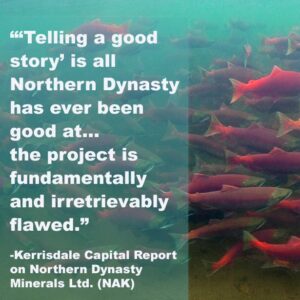
Pebble called “worthless”
A New York based investment firm gave Bristol Bay a Valentine this week.
Kerrisdale Capital, a research-oriented firm, described the Pebble project as fundamentally flawed and not commercially viable.
The authors of the February Kerrisdale Capital Report on Northern Dynasty said the reason Pebble “has languished for so long has less to do with regulation than with economics: the mine would be so expensive to build and operate that it wouldn’t produce an adequate return.”
The report vindicates Pebble Mine opponents who have fought the development for years to protect the Bristol Bay watershed and its fisheries and communities. Wild salmon provide thousands of sustainable local jobs and subsistence food to Alaskans.
Those opposed have continuously argued that the proposed mine risks a sustainable resource and the health of the watershed and land. Pebble has complained that the Environmental Protection Agency has unfairly delayed development, but the investment report discounts that argument.
The report is replete with key points touching on the reasons other major investors backed out, the insurmountable engineering and economic challenges of the project, and the politics and opposition to Pebble within Alaska. Here are just a few of the report’s conclusions:
- We believe Northern Dynasty is worthless. Though the legal and regulatory problems that will continue to plague the Pebble project even under a Trump presidency are enormous, the project’s Achilles’ heel is more fundamental: economics.
- Teck sold, Mitsubishi sold, Northern Dynasty tried to sell, and Rio Tinto announced its intention to sell all well before the EPA initiated its veto process.
- The notion that Anglo withdrew because of the EPA’s veto – which hadn’t even been set into motion yet – is baseless revisionist history. As one former Anglo engineer told us, “Anglo exited because of economics.”
- As demonstrated by the opposition of many high-profile Republican politicians, anti-Pebble sentiment cuts across conventional party lines. The mine’s local unpopularity, coupled with the added requirement of legislative approval, would put its future in grave danger even if it were commercially viable.



